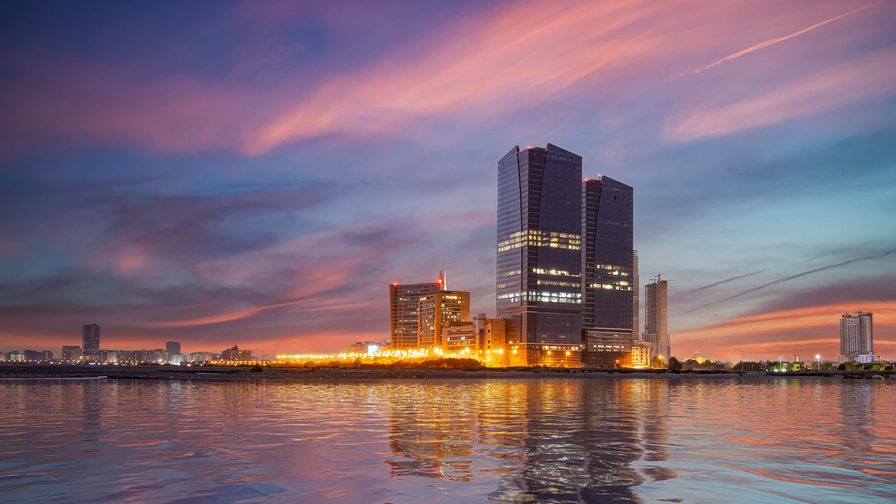Opportunities in Pakistan’s Islamic finance growth
Explore how Pakistan’s shift to Shariah-compliant finance unlocks opportunities in Sukuk, trade, and ESG-linked growth for corporates, FIs, and investors.

The original article written by Azhar Aslam is featured on The News
In April 2022, Pakistan’s Federal Shariah Court issued a historic ruling directing the country’s financial system to shift fully towards Islamic banking. This milestone reflects a growing recognition: Shariah-compliant finance is not only a religious imperative but also an economic opportunity.
Globally, Islamic finance has grown into a USD 5.5 trillion industry and is projected to reach USD 7.5 trillion by 2028. Pakistan has the chance to position itself as a leader in this transformation, provided the right policies, products, and infrastructure are in place. At Standard Chartered Saadiq, we see this as a pivotal moment to help shape a resilient, inclusive financial system.
Unlocking domestic liquidity through Sukuk
Pakistan’s government borrowing currently amounts to about PKR 45.5 trillion, but only 12.5% is raised via Sukuk – with the rest through conventional instruments like T-bills and PIBs. Expanding Sukuk issuance is critical for deepening Pakistan’s Islamic capital market.
Shariah-compliant government securities, both tradeable and non-tradeable, can mobilise untapped domestic liquidity. Standard Chartered Saadiq is already working with the State Bank of Pakistan and other stakeholders to explore asset-backed Sukuk and “asset-lite” structures that can accelerate this shift.
Building the right legal and regulatory ecosystem
For Islamic banking in Pakistan to thrive, a supportive institutional framework is essential. This includes:
- Standardising contracts and governance models.
- Aligning Shariah boards and regulatory bodies.
- Strengthening oversight across banks, insurance firms, and asset managers.
Drawing on our global experience across Asia, the Middle East, and Africa, Standard Chartered Saadiq is actively engaging policymakers to ensure reforms are practical, scalable, and internationally credible.
Strengthening cross-border connectivity
One of the biggest challenges is bridging Pakistan’s Islamic finance system with the global economy, where conventional banking still dominates. To succeed, Pakistan must scale up:
- Shariah-compliant trade finance for cross-border flows.
- International Sukuk issuance for foreign investors.
- Liquidity management tools that align with Islamic principles.
Standard Chartered’s global footprint allows us to connect Pakistan with international Islamic capital markets, creating opportunities for corporates, financial institutions, and investors seeking Shariah-compliant solutions.
Expanding beyond traditional products
The next phase of growth requires broadening the product suite. Beyond Sukuk, the market must deliver:
- Murabaha and Istisna structures for trade and supply chain finance.
- Interest-free liquidity solutions, including Shariah-compliant cash pooling.
- ESG-linked and Green Sukuk, vital for Pakistan’s sustainability agenda.
By innovating in these areas, Pakistan can make Islamic finance not only compliant but also competitive and forward-looking.
Human capital: The missing link
A successful transition depends on people as much as products. Currently, there is a disconnect between academic teaching and industry needs – with limited focus on practical product design, regulation, and risk management.
Partnerships between universities, regulators, and financial institutions are needed to create a new generation of professionals who are well-versed in both Shariah law and modern financial practices.
The way forward
To fully unlock the potential of Shariah-compliant finance in Pakistan, four priorities stand out:
- Deepen the Sukuk market to channel liquidity.
- Reform regulation and governance to ensure consistency.
- Build international linkages to support cross-border finance.
- Invest in human capital to sustain long-term growth.
Pakistan is at a turning point. The transition towards Islamic banking will require coordinated action – but it is both feasible and urgent. Done right, it can unlock domestic resources, enhance financial inclusion, and align Pakistan with global Islamic finance trends.
At Standard Chartered Saadiq, we are committed to supporting this journey. With our global expertise, Shariah governance frameworks, and innovative product capabilities, we are ready to partner with clients and regulators to make Pakistan’s financial system fully Shariah-compliant, sustainable, and future-ready.
Explore more insights
Corridors in focus: Our People – Christine Chan
"Twenty years ago, I was working at the docks as a management trainee. Today, I help connect China and Europe’s …